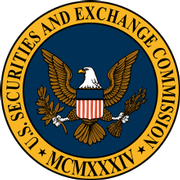Sports Law Development of the Week: SEC Files Suit, Settles with Nevada-Based Sports Wagering Investing Companies

By: Cameron Miller
For most people, sports wagering is a recreational activity – just another of Las Vegas’ endless entertainment options (and now, after the Supreme Court’s invalidation of the Professional and Amateur Sports Protection Act (PASPA), other states). Nevada-based Contrarian Investments and Nevada Sports Investment Group (NSIG), however, saw wagering not simply as leisure, but as an investment opportunity. And it worked—for about two-and-a-half-years, until the Securities and Exchange Commission (SEC) hit both entities with lawsuits in early September 2018 alleging violations of the Securities Act. In what appears to be a coordinated effort, both Contrarian and NSIG settled with the SEC the day the complaints were filed.
Some context: In 2015, the Nevada legislature enacted SB 443, which allowed entities in the state to collect, pool, and invest money in sports wagering. The legislation required the investors to disclose their identities and the entities accepting the investments to hold the funds in Nevada bank accounts. With the backing of a Las Vegas sports book manager and then-state senator Greg Brower—himself the former U.S. Attorney for Nevada—SB 443 was billed as “an alternative investment strategy.” For a time, it was. Since they began taking client money in spring 2016, Contrarian and NSIG raised nearly $1.5 million combined. Both investment companies then invested that money in sports bets; Contrarian kept 20 percent of winnings and distributed the remainder to its investors on a proportional basis, while NSIG took 30 percent. The only problem—as alleged in the SEC complaints filed on September 7—is that neither Contrarian nor NSIG adhered to existing securities laws in operating what were, in effect, mutual funds.
The Securities Act—passed in 1933 the wake of the stock market collapse of the late 1920s and subsequent economic depression—serves two main purposes, according to the federal government:
- It requires that investors receive financial and other significant information concerning securities being offered for public sale; and
- It prohibits deceit, misrepresentations, and other fraud in the sale of securities.
To that end, the Securities Act requires securities sellers to file a registration statement that must include, amongst other information:
- The name under which the issuer is doing or intends to do business.
- The general character of the business actually transacted or to be transacted by the issuer.
- The estimated net proceeds to be derived from the security to be offered.
- A copy of the opinion or opinions of counsel in respect to the legality of the issue, with a translation of such opinion, when necessary, into the English language.
Per the SEC, the registration packet is publicized shortly after its receipt so that prospective securities buyers can fully inform themselves of the entity offering the security.
Not all securities offerings need complete the registration statement. Those that are offered to in-state residents only or by the local, state, and the federal governments, for example, are exempt from the registration requirements.
The SEC’s complaint alleges that Contrarian and NSIG never completed a registration packet and do not qualify under any of the Securities Act’s exceptions (both entities accepted funds from out-of-state and international investors). By failing to do so, both companies violated 15 U.S.C. §§ 77e(a) and 77e(c), which prohibit the sale of unregistered securities.
The complaint requests injunctive relief that would bar Contrarian and NSIG from continuing to violate the Securities Act—which, as agreed to in the settlement documents filed by the two companies—bars them from continuing to accept client money for the purposes of investing it in sports wagers until it filed the proper registration paperwork with the SEC. Contrarian and NSIG could also face investor suits: Section 5 of the Securities Act permits purchasers to recover their original investment with interest.
As part of the settlement agreement, Contrarian and NSIG will cease “making use of any means or instruments of transportation or communication in interstate commerce or of the mails to sell [an unregistered] security through the use or medium of any prospectus or otherwise” and send a copy of the final judgment—which does not admit wrongdoing—to each of its investors within 30 days of its finalization.
Also of note is that CG Technology—the sports book manager supporting SB 443—has endured multiple regulatory fights with the Nevada Gaming Control Board (NGCB), resulting in $7 million in fines between 2014 and 2016. In August 2018, it was announced that CG and the NGCB had reached a settlement on additional misconduct by CG, which includes issues with the entity’s gaming technology and its acceptance of wagers from non-Nevada residents. CG reportedly worked with both Contrarian and NSIG in wagering investor funds, but it is unclear if its regulatory problems precipitated the SEC’s involvement.
As sports betting in the United States continues to expand with the downfall of PASPA, sports betting investor groups and other creative modes of capitalizing on wagering are likely to develop outside of Nevada. As the Contrarian and NSIG cases make clear, these entities, where necessary, should ensure compliance not only with state law, but also with federal codes.
Cameron Miller is a 2016 graduate of Stanford University and earned a Master's in Sports Law & Business from Arizona State University in 2017. He is the Sports Lawyers Association's Research Assistant and is a first-year law student at Georgetown University.
Comments
You must be logged in to post a comment.
Click here to log in